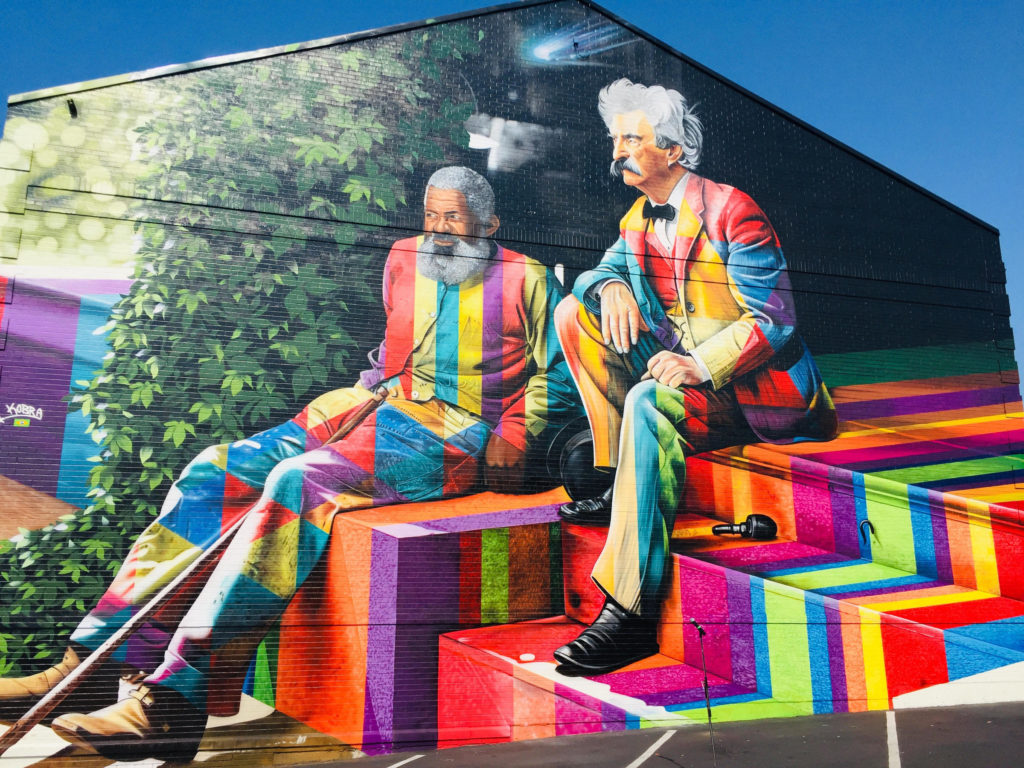Twain and Lewis, 2019
Eduardo Kobra
Brazilian, born 1976
CURRENTLY ON VIEW
Location: 1188 Hertel Avenue (Get Directions)
In designing his mural for 1188 Hertel Avenue, São Paulo-based artist Kobra immersed himself in Western New York’s history. During his research, he found himself drawn to the legacy of one of the region’s most famous residents, Mark Twain, and his perhaps less well-known—but nonetheless significant—friendship with John T. Lewis.
Born poor, but a free African American, in northern Maryland in 1835 (the same year as Twain), Lewis taught himself to read and write while earning a modest living as a farmer and blacksmith. However, as tensions mounted in the years leading up to the Civil War, Lewis decided to move north, eventually settling in Elmira, New York, in 1864. There, he found work—first as a coachman and later as a farm manager—for Jervis Langdon, one of the town’s wealthiest residents and a leader of the area’s passionate abolitionist community. Twain also found himself drawn to Elmira by another member of the Langdon family: Jervis’s daughter, Olivia, whom he married in 1870. Even after the family moved to Hartford, Connecticut, they would frequently spend summers in Elmira, where Twain would go on to write major portions of some of his best-known works, including The Adventures of Tom Sawyer, Adventures of Huckleberry Finn, Life on the Mississippi, A Connecticut Yankee in King Arthur’s Court, and The Prince and the Pauper. It was during one these trips, in August 1877, that Lewis’s and Twain’s stories intersected after Lewis heroically managed to stop a runaway horse and buggy carrying Twain’s sister-in-law and niece from plunging off a cliff. From this inauspicious beginning, Lewis and Twain struck up an enduring friendship, which profoundly impacted Twain’s understanding of race and inequity in the United States during this time.
